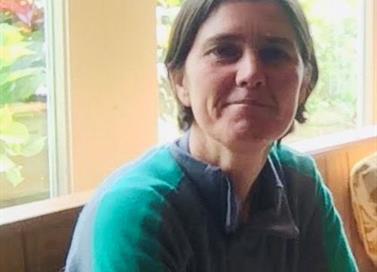Holding onto what matters
01 June, 2020
To mark Pride 2020, Dr Maire Cooney explores the concept of physical distancing in relation to LGBT+ history – and highlights the importance of increasing acceptance and visibility in our communities.
Summertime. Wonderful, isn’t it? The days long, warm and full. Life moves outdoors and there’s something for everyone; barbecues and picnics in the parks, festivals of music, arts, sports and a myriad of Pride events.
Except this year.
2020 is different. Priorities have changed. Health and wellbeing are our key concern, rightly. But Pride will be commemorated, because it matters. From New York’s 1970 Christopher Street Liberation Day, a year after the Stonewall uprising, to this
summer’s cleverly reimagined virtual events, Pride is a colourful, global and energetic celebration of all things LGBT+.
Social distancing
2020 has been hard. Being physically and emotionally distanced from family and friends feels wrong because it is wrong. Being near others matters; it strengthens the immune system, regulates digestion, aids sleep, provides comfort.
Social distancing is a new concept for many, but for many LGBT+ people it’s just the way of existing. In some parts of the world public displays of affection are reckless, even dangerous. Even in countries with strong LGBT+ rights holding hands, or letting go of your partner’s hand in certain situations, is just something you learn to do.
I held my partner’s hand in public only after we had our boys. As if being a family with young children legitimised it. When our boys were small the four of us would walk together, all in a line across the street, swinging hands. It was lovely, liberating and probably very annoying for anyone trying to get past.
LGBT+ people are more liberated and protected than ever, in large parts of the world. Why then does the evidence tell us that being in a sexual or gender minority group is still a risk factor for anxiety, addictions, self-harm and depression?
Belonging
It’s difficult to feel pride in yourself when who you are seems so at odds with your social and cultural identity. Allow me an anecdote:
I was in my final year at school when legislation was passed to prevent schools from ‘promoting homosexuality’ and teaching about ‘pretended family relationships.’ That really stays with you. Around that time, in football crowds and pubs, we’d sing about who we were; our heroes and history, glories and triumphs. And about the ‘gay’ opposition players. I joined in, at least a few times. The sense of belonging was so important it allowed me to bury any doubts about the words in those songs.
Football is of course much more good than bad. I met my partner at our university football club and we’ve been together since (she won’t mind me mentioning her impressive staying power). We have been lucky. We have a family that is recognised and protected as a family, not a pretended one. We have good families and good friends. There have been tricky times, of course, but things have been easier for me as a gay woman than for many, many other LGBT+ people.
So after 25 years I’m making an effort to hold hands with my partner in public. It can still feel like a gesture or statement and that’s tricky, but I am proud of her, and I’m proud of us, and we plan to hold on.












